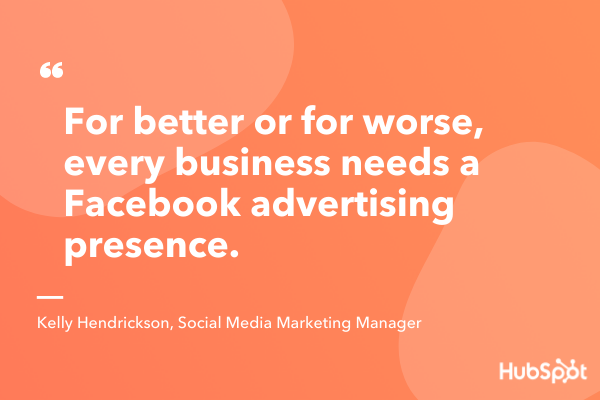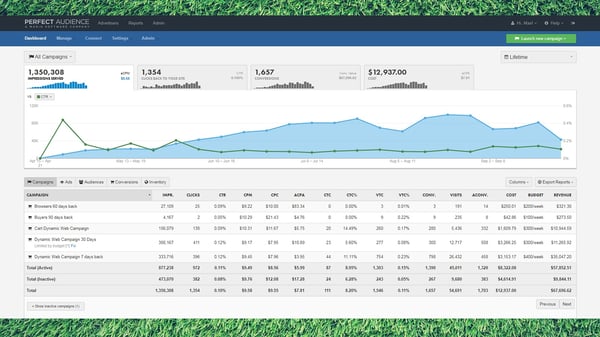Which Social Networks Should You Advertise on in 2021?
Whether you use it to supplement your existing inbound marketing efforts or it makes up your entire strategy, you’ve probably used social media to meet your marketing objectives.
There are various social media platforms to choose from, and each comes with a user base that brings different advertising potential. Even though there are so many platforms, HubSpot marketing experts Kelly Hendrickson and Andrew Delaney don’t think that you should be using all of them.
Featured Resource: Digital Advertising Training Course
Hendrickson says, “When it comes to choosing which social platforms to invest in, there’s often not a one-size-fits-all answer.” This is because, based on your business’s buyer personas and marketing goals, certain channels will help your advertisements gain more traction, while others may not be as impactful.
This post covers six different social media platforms to give you an understanding of when you should and shouldn’t elect to use them in your social media advertising strategy.
→ Free Download: Social Media Calendar Template [Access Now]
Which social networks should you advertise on?
When deciding which social networks to use, Delaney says, “It’s difficult to recommend one platform or another for social advertising.” It’s best to take a holistic view of your needs, what the platform has to offer and go from there.
That being said, some social networks are better equipped for meeting overall marketing needs than others, and we’ll discuss those below.
Facebook has around 1.82 billion daily active users and is one of the most popular social media platforms. It is also the leading marketing platform worldwide, with 91% of B2B and 96% of B2C marketers using it for advertising and marketing.
Given this, Hendrickson says, “For better or for worse, every business needs a Facebook advertising presence.” The platform has the most powerful tools for optimizing and targeting, enabling marketers to create a true buyer’s journey within the platform. Hendrickson adds, “It’s also a lot of bang for your buck,” meaning that conversion rates on the platform are high (4.7%, to be exact).

Whether you’re a software company or a clothing business, you’ll likely find success on Facebook, especially if you use their ad management tool and create a Facebook marketing strategy that carefully considers your target audiences.
You can think of it like this: 15% of Facebook users use the platform to find and shop for products. Suppose you’re an eCommerce business that has targeted the right audiences for your advertisements. In that case, the networks' high conversion rates say that your target market, who are already using the platform to shop, are likely to make purchases based on your ads.
Should you choose to use Facebook, you can use automation software, like Perfect Audience, to ensure that you’re continuously nurturing leads and targeting the most qualified customers. Perfect Audience helps you generate lists of users on Facebook that are most likely to become customers and re-targets them for continuous influence.
If you’re a HubSpot user, the tool integrates with Marketing Hub, and you can analyze campaign success and track conversions. Once you understand who your most qualified customers are, Perfect Audience helps you continuously re-target those customers to maximize your influence. The image below displays a summary of a campaign analysis on the Perfect Audience platform.

When shouldn’t you advertise on Facebook?
Despite being useful for most businesses, there are still times where advertising on the platform is not as beneficial.
For example, if you don’t have a deep understanding of who your target audience is, it might be best to place Facebook on the back burner until you can gain a thorough understanding of who they are. While ad targeting on Facebook is specific, and the algorithm learns from your leads over time, the process begins with a pre-existing list of groups to target.
Comments
Post a Comment